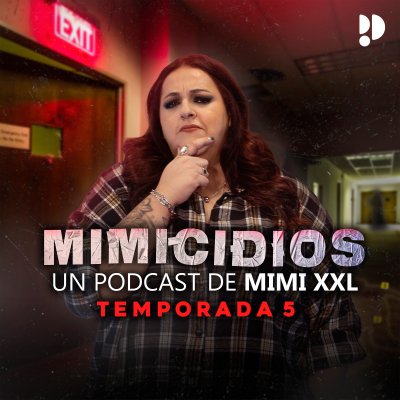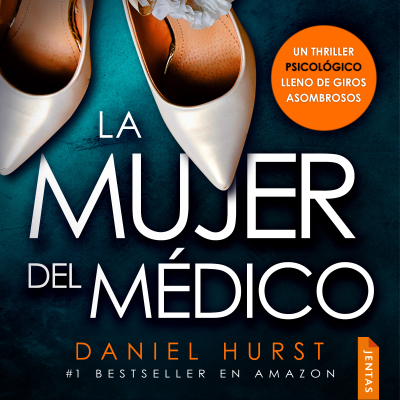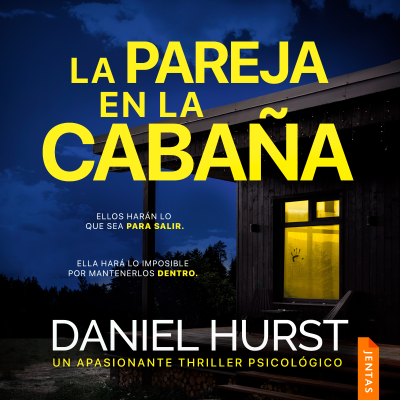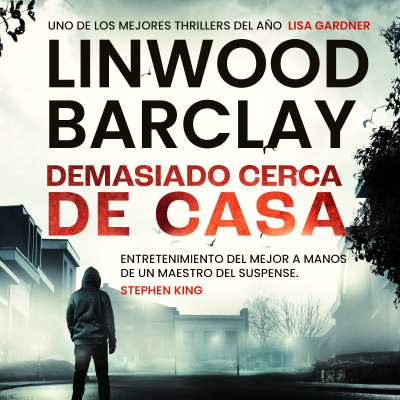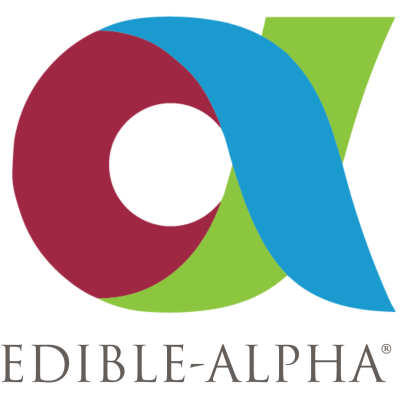
Edible-Alpha® Podcast
Podcast de Food Finance Institute
The Edible-Alpha® podcast is your source for actionable insights into making money in food.
Disfruta 90 días gratis
4,99 € / mes después de la prueba.Cancela cuando quieras.
Todos los episodios
86 episodiosIn Edible-Alpha® podcast #121, Brad talks with Idella Yamben, Ph.D., director of the Center for Technology Commercialization [https://wisconsinctc.org/] (CTC), which, like FFI, is part of the University of Wisconsin System’sInstitute for Business & Entrepreneurship [https://business.wisconsin.edu/]. CTC offers a variety of programs and resources to help early-stage technology businesses—including those in the food or agriculture space—develop and conduct research to inform commercialization strategies and access funding to support the work. Idella insists that research and technology aren’t only about next-gen gadgets, machine learning, or university lab studies. CTC mainly works with inventors who have a novel approach to addressing a critical problem. For instance, maybe a farmer thinks of a way to boost crop yields, or a food entrepreneur wants to assess a new manufacturing process. CTC could help them determine how to test their hypotheses, business models, and market viability. “You might not think what you’re doing could use technology, be innovation, or require research,” Idella says. “But my team’s job is to see if those opportunities are there and help you go after federal funding.” One of CTC’s offerings is Ideadvance [https://wisconsinctc.org/programs/ideadvance/], which provides companies with seed money to test their business models through the Lean Startup framework. It helps them hone in on their target consumer, path to market, positioning, etc., to give the product, service, or solution the best chance of success. CTC also prepares entrepreneurs to apply for Small Business Innovation Research (SBIR) and Small Business Technology Transfer (STTR) programs, aka America’s Seed Fund [https://www.sbir.gov/]. Through this highly competitive program, 11 government agencies, including USDA, offer grants for early-stage R&D. Through all of its programs, CTC helps startups test assumptions, which Idella says is basically the scientific method: “You make a hypothesis, develop an experiment, run it, then iterate.” But to ensure the best outcomes, she says it’s important to take a very disciplined approach to determine what that assumption and experiments should be. CTC helps entrepreneurs do that, often in partnership with industry-specific resources such as FFI. A key piece of the Lean Startup model is customer discovery, which involves both listening to potential customers and then running experiments to validate what an entrepreneur thinks they heard. Ideally, the results can provide answers around cost, revenue, or value proposition. Idella says those findings should then be balanced against the team’s goals and unique capabilities, which will help differentiate the business proposition. Through this process, entrepreneurs learn to synthesize information and become storytellers, both important skills for seeking any kind of financing. Also through this work, entrepreneurs typically meet a lot of people and learn a ton. By listening well, Idella says they could identify a new angle, a different problem, or an opportunity to pivot. And pivoting early could save a lot of headaches—and money—later on, potentially even preventing a failed business. Brad and Idella cover a whole lot more in this engaging podcast, including the many free tools, resources, and funding sources available to food and farm entrepreneurs.
In Edible-Alpha® podcast #120, Andy sits down with Cliff McConville, founder of All Grass Farms [https://www.allgrassfarms.com/] northwest of Chicago. The diversified ag operation provides raw A2 milk, 100% grass-fed beef, pastured pork, organic vegetables, and free-range turkeys, broiler chickens, and eggs, all sold at the onsite farm store or online. After working in the insurance business in Chicago for 25 years, Cliff’s last job allowed him to work from home. Now with more free time, he and his partner Anna purchased a suburban horse farm. Soon the documentary Food Inc., Michael Pollan’s The Omnivore’s Dilemma, and Joel Salatin’s You Can Farm sparked his intrigue in small-scale regenerative farming, so in 2011, he gave it a go on their 8.5 acres. Cliff loved the work and realized it could become a small business, so in 2012, they started selling grass-fed and pastured proteins out of their house. Customers asked for raw A2 milk, which was not on Cliff’s radar, but once he researched its benefits, he became a devotee. They bought two Guernsey cows, got licensed to sell raw milk, secured liability insurance, and added the in-demand product to their mix. With business booming, Cliff and Anna needed to increase production, so they leased 20 acres of pastureland near their home. Needing even more pastureland and ideally a dairy barn, they found exactly what they were looking for in the Brunner Family Forest Preserve [https://kaneforest.com/location/brunner-family], a picturesque property along a busy suburban highway. After 18 months of negotiations, they worked out a unique 25-year lease. The forest preserve invested $200,000 to restore the historic dairy barn’s roof and foundation while Cliff and Anna foot the bill for septic, electricity, fencing, and other upgrades. They lease 160 acres for $150 per acre and pay the preserve 5% of all farm store sales. Cliff calls this a wonderful partnership, and the property’s high visibility has supercharged sales. Next, Andy and Cliff dig into the financials, as Cliff meticulously tracks production costs, sales, and profits of each enterprise. The largest and fastest growing animal enterprise is beef, while raw milk, which requires a ton of labor and time, isn’t nearly as profitable, so Cliff caps production. His data also informs when and where to raise prices to ensure profitability. Uniquely, All Grass Farms has equity investors, longtime friends who were eager to provide patient capital. Later on, they took out an operating line of credit to help with infrastructure improvements. Most recently, Cliff and Anna began leasing organic pastureland in Elkhorn, Wisconsin, owned by the Yggdrasil Land Foundation [https://www.yggdrasillandfoundation.org/]. With a triple-net lease, they maintain the buildings, property, and infrastructure and pay insurance, property taxes, and a stewardship fee as rent. Cliff and Anna now live at this property and are looking for a full-time farm manager for the Brunner property, although finding and keeping workers is challenging. Cliff is a great role model for managing farm finances, so tune in to learn more!
In Edible-Alpha podcast #119, Andy talks to Will Glazik of Cow Creek Organic Farm [https://www.cowcreekorganics.com/] and Silver Tree Beer & Spirits [https://www.silvertreebeerspirits.com/] in Paxton, Illinois. The fifth-generation farmer is building upon his family legacy with his own organic grain operation and vertically integrated distillery business. Will’s parents transitioned Cow Creek Farm to organic in 2002, an anomaly in an area dominated by conventional row-crop agriculture. He went off to college, got an agronomy degree, and entered ag retail while still helping his father farm on the side. But selling chemical fertilizers and pesticides didn’t really jive with Will’s values. Instead, he enjoyed teaching area farmers how to save money and be more sustainable through cover-cropping, reduced tillage, integrative pest management, and eventually transitioning to organic. Though he was a sought-after consultant, Will wanted to farm. But with ground costing up to $14,000 per acre in his county, purchasing land wasn’t the best option. Instead, by chance encounter, he met landowner Jackie Davis, who wanted to transition her ground to organic. The two hit it off, forged a 50/50 share crop agreement, and Will got to work, using $20,000 he’d saved up. Going in, he thought he had all the answers, but he soon learned he did not. There were some tough years, but Jackie remained supportive. After working out the kinks, Will says they went “hog wild,” expanding their rotation to 14 crops, bringing in hogs and cattle, and dabbling in distilling. Combined with raising a young family, this was a recipe for burnout. All along, Will just assumed that his specialty crop variety made him more profitable. But once he hired an accountant, he learned that wasn’t the case. In reality, the extra work required to grow some of those crops canceled out the profits. So he streamlined his operations, narrowed his crop assortment to six, and created a better work-life balance. Now, rather than acquiring more acreage, he’s trying to coax more profitability out of each acre—a smart move since growing grains isn’t Will’s only endeavor. Already hobby brewers, he and his brothers founded Silver Tree Beer & Spirits in 2017 to turn their grains into beer, vodka and whiskey. They partnered with an established distiller to produce the vodka, then the Glaziks “busted their tails” trying to secure distribution. Will says the marketing part is tough, but they’ve learned a lot and built solid relationships. Meanwhile, they began aging their whiskey, ready for release this fall. When their distiller decided to scale up, he sold his equipment to the Glaziks. Then last year they bought a fixer-upper in Paxton, gutted it, moved in the equipment, are now almost ready to start distilling. By owning every step from farm to bottle, their margins will balloon. Eventually, they’ll open tasting room and tour experience, which the town is thrilled about. Tune into the full podcast to get the full story, including how Will and his brothers have financed their endeavors.
In Edible-Alpha® podcast #118, Andy has a fascinating discussion with Belinda Kelly and Venise Cunningham, co-founders of Simple Goodness Sisters [https://simplegoodnesssisters.com/]. The two started with a retail line of small-batch simple syrups and have since diversified with a subscription box club and the Simple Goodness Soda Shop in Wilkeson, Washington. Growing up with a family business, Belinda and Venise knew they wanted to be entrepreneurs someday. Both worked in tech in Seattle, but after becoming moms, they craved careers more aligned with their passions and lifestyles. Venise loved working on Simple Goodness Farm, which she and her husband bought in 2010, while Belinda enjoyed cooking. In 2016, Belinda quit her corporate job and launched a mobile bar business that became an instant hit. The secret to her success were her handcrafted simple syrups featuring herbs, fruits, and edible flowers from Venise’s farm and other locally sourced ingredients. Serving craft cocktails at events ginned up demand for the syrups, and Venise eventually convinced Belinda that they should launch a retail product. So, they set to work on Simple Goodness Sisters, with Belinda developing recipes and Venise researching potential co-packers. They finally found a co-packer six hours away that would take their very small, self-financed run, capped at 1,000 bottles to test demand. Though that partnership was ultimately unsustainable, they learned a ton about producing at scale. Launching their first flavors in 2018, they received rave reviews and decided to ramp up production. As their business grew, Belinda sold the mobile bar company and Venise expanded production on her farm. While still using a co-packer, they wanted to get certified to produce small batches themselves, which leads to their brick-and-mortar endeavor. They’d purchased a historic building in touristy Wilkeson, envisioning it as a seasonal off-farm agritourism destination for sampling cocktails, sodas, and other items featuring their syrups. Also, having learned from an FFI boot camp that they needed a steadier cash flow, they began plotting a subscription box featuring special-release syrups that they’d produce onsite. When the liquor board demanded that they also sell food, Belinda and Venise pivoted concepts to include a farm-to-table sandwich menu. The pandemic forced even more pivots, first delaying the Simple Goodness Soda Shop’s opening from May to October 2020 and then turning it into a to-go joint. Still, the shop gained a following in the 10 weeks it was open before closing for the season. In early 2021, they launched Cocktail Farm Club, which has grown significantly, aided by the sisters’ active social media presence and key PR opportunities. They also reopened the Soda Shop in May and had a great first full season, followed by a bustling 2022 so far. With their retail, wholesale, and e-commerce business growing as well, Simple Goodness Sisters has outgrown its co-packer. So now Belinda and Venise want to invest in their own production facility, which will require more financing. Having mostly self-financed and invested in real estate thus far, along with receiving a USDA marketing grant, this will be an exciting next phase for this inspiring business.
In Edible-Alpha® podcast #117, Brad chats with Sylvie Charles, M.D., who traded a stable career as a physician for the wild ride of entrepreneurship when launching organic real-food sweetener company Just Date [https://www.justdatesyrup.com/] in 2018. She shares the mission behind her endeavor, along with her business arc and growth strategy. As a practicing physician at the University of California, San Francisco, Sylvie was alarmed by the rise in obesity, type 2 diabetes and other chronic illnesses. She knew that refined sugar in the diet was a key culprit, yet her patients often struggled to cut back. Realizing that there really wasn’t a healthy, great-tasting alternative to cane sugar, she thought about nutrient-rich dates, which her Indian family used to sweeten chutneys. Sylvie got to work developing a low-glycemic organic date syrup that has less sugar than maple syrup, honey, or agave and delivers fiber, vitamins, and minerals. Her family, friends, and patients loved it, so she took it to Bay Area natural foods retailers, where it flew off the shelves. About two months in, Just Date broke into Whole Foods Market nationwide, prompting Sylvie to quit practicing medicine to be a full-time entrepreneur. The move paid off. After three years of proving the concept with three flagship SKUs and several other products, Just Date is now in about 2,000 natural retail doors. The brand also does a robust e-commerce business and has a small but growing foodservice arm. Sylvie has mainly bootstrapped the company with her own money, loans, credit, and reinvested revenue, which limited growth and kept it mostly a one-woman show. Recognizing that raising funds and building a team could turbocharge the next phase of growth, she recruited a business partner from the tech world last year. Together, they raised a successful seed round and put together a sales and marketing team. Though bootstrapping made for some lean years, Sylvie is grateful she is only receiving investor money now that she knows exactly how to spend it. In less than a year, the company has made tremendous progress, including by optimizing its supply chain, enhancing sustainability, and refining its messaging and branding. Acknowledging that sugar science is complex and the array of alternative sweeteners is confusing, Just Date has opted to message more around its simple, clean ingredients and low-sugar proposition. What’s next for this growing company? While it has done wonderfully in the natural channel, Sylvie says there is still room for growth there. She also aims to make more inroads in conventional to reach a broader audience. More opportunities are opening up in the foodservice space too, and as an ingredient play, with other CPG brands swapping sugar for Just Date sweeteners. Though the exact path ahead isn’t carved out yet, Sylvie hopes to grow the company to about $20 million and exit in about five years.
Disfruta 90 días gratis
4,99 € / mes después de la prueba.Cancela cuando quieras.
Podcasts exclusivos
Sin anuncios
Podcast gratuitos
Audiolibros
20 horas / mes

